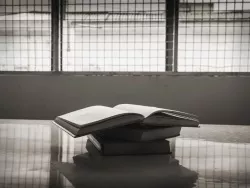Why FE teachers should consider working in prisons

Prison education has come a long way in recent years. There is an increased awareness of education as a tool for avoiding reoffending – prisoners who leave with qualifications and new skills are better equipped for finding employment and obtaining a steady income. The work of charities such as Clink has also made a huge difference to prison education – Clink set up a new restaurant on prison grounds in Brixton that trains prisoners to work in the catering industry and allows them to serve food to the public. The Prisoners’ Education Trust (PET) funds over 250 distance-learning courses, allowing prisoners to explore different interests and find the right educational provision for them. In 2018, they saw 272 new learners take a range of Open University Access Modules and 66 new leaners take a gym instructing qualification. While some education can be obtained through online means, many courses still place prisoners in a traditional classroom environment with a teacher. While the benefits are obvious for prisoners, what can a teacher gain from pursuing a career in prison education?

Working with those most eager to learn
Prisoners are often aware of the need to gain qualifications to better their futures and many have reported on receiving the majority of their education in prison. For those that found school challenging or who were not in the right frame of mind to apply themselves to study, prison is often their best experience of education. This is not to say that prisoners will never be disruptive or resent the need to complete work, but that they are likely to apply themselves to subjects they are interested in and the possibility of a career when released is a great encouragement.
With more subjects on offer than ever before, learners in prison can choose from a huge variety of academic and vocational subjects. Everything from gardening and woodwork to English and Science is available, ensuring that prisoners can find a course that appeals to them. Adult education is broader than that observed in schools and this can help prisoners to approach study with a different mindset and to feel truly involved in the direction of their learning journey.
Voicing diverse opinions
Where teachers may find it challenge to draw out diverse opinions among their usual students, prisoners are often less afraid to speak their minds, regardless of whether this is likely to cause offence to other people. This may seem daunting and although disagreements are par for the course, teachers may find their most fierce debates are channelled through their prison students.
A lack of viewpoint diversity among lecturers and students alike has been covered in the press recently, with journalists describing less individuality in critical thinking and the death of the educational institution as a political springboard. The alignment of views does not happen so easily in prison – many prisoners have strong views that have, in some cases, contributed to the circumstances of their imprisonment. These views may be difficult to challenge, but that is what debate is all about. If you’re looking for interesting conversations among students with widely varying views, prison education is the route for you.

Building rapport with smaller class sizes
Teachers frequently complain about class size – a bigger class makes it harder to give everyone adequate attention and build rapport with students, and also offers more opportunities for disruption as students are more enabled to distract each other. Prison classes rarely exceed eight students, allowing teachers to properly connect with their learners and give special attention to those who need it. The benefits of learning under the teacher’s direction will reveal itself more readily with a smaller class, as teacher’s can enjoy seeing the improvement in students take place faster and more clearly.
Rapport among prisoners and their teachers is essential for success. As prisoners have often had difficult educational experiences, it is important for them to feel that they can trust their teachers to do what is best for them and to have their interests at heart. Teachers with a lot of compassion and a desire to build meaningful relationships with their students would be well suited to roles in prison education.
Of course, working in a prison is certainly not going to be a walk in the park – teachers need to be resilient to handle the emotional distress they will witness, prepare for lessons that cannot as easily be altered at the last minute (due to a lack of resources, such as the internet, that can easily be accessed outside the prison but is not possible to access inside it) and understand the boundaries in prisoner-teacher relationships, but those who are able to cope with the pressures of a prison environment will find their jobs incredibly rewarding. FE teachers interested in applying for prison roles can search jobsites or contact charities such as The Prisoners’ Education Trust directly.

You might also be interested in:
- Family Learning in Prisons: A Resources for Prisons and Learning Providers (resource) - encourages positive family relationships between prisoners and their relatives and is most beneficial for learning providers, prison governors and staff, family learning managers and programme commissioners
- Toolkit by PET (resource) - PET has created a toolkit that aims to help prison staff, academics, widening access staff and students understand the different types of prison-university partnerships and provides guidance for establishing new prison-university projects
- FELTAG: Using Technology for Learning in Further Education (blog) - focuses on the recommendations made by FELTAG in respect of the need for innovative digitalisation of FE colleges and provides sources for funding, support and CPD for education staff
- College Expo 2019 - Perth College University of the Highlands and Islands (blog) - discusses the 2019 College Expo event, giving an overview of exhibitors and considering insights from a keynote speaker and the expectations of future learners
- Sport for Development and Criminal Justice Sector-wide Theory of Change (resource) - the Alliance of Sport has delivered a vision for how Sport for Development and Criminal Justice sectors can work together to achieve a whole system impact




